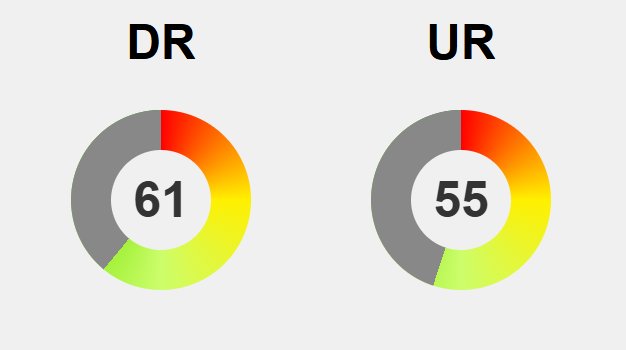Navigating legal support in Ontario’s small business landscape raises a vital question: should you prioritize the expertise of a lawyer or the affordability of a paralegal? While many entrepreneurs default to hiring high-cost lawyers, is that always necessary—or could a focused paralegal handle simpler tasks more efficiently? This guide reveals that understanding each professional’s scope can save your business money while ensuring legal protection. Lawyers offer comprehensive support for complex issues like high-stakes contracts and disputes, but paralegals excel in handling routine matters such as tribunal disputes and contract reviews at a fraction of the cost. Making the right choice hinges on accurately assessing your needs—overlooking this can lead to unnecessary expenses or insufficient protection. Are you leveraging the best legal support for your business? This strategic insight emphasizes that choosing wisely can safeguard your growth, reduce stress, and optimize your resources amid Ontario’s evolving legal landscape.
Navigating Legal Support: Choosing Between Lawyers and Paralegals for Small Businesses
Starting a small business in Ontario is exciting, but it also comes with its fair share of challenges—especially when it comes to legal support. Navigating contracts, disputes, or regulatory requirements can feel overwhelming, and choosing the right professional to help can make a big difference. That decision isn’t just about legality; it’s about finding support that fits your budget and your needs.
Many entrepreneurs default to hiring a lawyer, assuming they need the broadest expertise for any legal issue. While lawyers do offer comprehensive support, their services often come with a higher price tag. For straightforward matters, such as reviewing contracts or handling minor disputes, this might be more than what’s necessary—and more than your budget allows.
That’s where paralegals come in. Licensed professionals with a focused scope of practice, paralegals can handle many routine legal tasks efficiently and affordably. They’re authorized to represent clients in specific areas like tribunal disputes and small claims, making them a practical choice for many small businesses. Understanding when to turn to a lawyer versus a paralegal can save you money without sacrificing protection.
The key lies in assessing your legal needs carefully. Are you dealing with a complex contract or a high-stakes negotiation? Or is it a simple dispute that can be resolved through a quick review? Making this distinction early helps you choose the right support, so you can keep your legal costs manageable while still safeguarding your business.
In the sections ahead, we’ll explore how to identify your specific legal challenges and match them with the right professional. Knowing when to call a lawyer and when a paralegal will do the job can be a game-changer for your business’s growth and stability.
Ontario’s Legal Support Landscape: Understanding Your Options and Regulations
In Ontario, small businesses have clear options when it comes to legal support—primarily lawyers and paralegals. Both are regulated by the Law Society of Ontario, which enforces strict standards to ensure they practice ethically and competently. This regulatory framework helps you understand what each professional can handle and how they are trained, making it easier to choose the right support for your needs.
Lawyers in Ontario undergo extensive education, including university, law school, and a period of articling—hands-on training under experienced lawyers. This comprehensive background prepares them to manage complex legal issues such as drafting detailed contracts, employment law matters, or advising on mergers and acquisitions. They’re equipped to handle high-stakes situations that require broad legal expertise.
Paralegals, in contrast, have a more focused scope. Licensed and trained specifically for certain legal areas, they are authorized to represent clients in Small Claims Court, handle provincial offences, and manage tribunal disputes like landlord-tenant issues. Their narrow focus makes them a practical and often more affordable option for straightforward legal tasks.
Both professionals must adhere to strict ethical standards and participate in ongoing education to stay current. This commitment ensures you receive reliable advice, whether your issue is routine or complex. Recognizing their regulatory differences clarifies which professional is best suited for your particular legal challenge.
Choosing between a lawyer and a paralegal depends on matching their expertise to the complexity of your legal needs. For intricate negotiations, high-value contracts, or litigation, a lawyer’s broad knowledge is invaluable. For simpler disputes or routine document reviews, a licensed paralegal can often provide effective support at a lower cost.
Understanding these regulatory frameworks helps you make informed decisions. It’s about aligning your legal support with the specific demands of your business, so you get both quality and value. Knowing what each professional can do ensures your legal resources are used wisely and effectively.
This foundation of knowledge about Ontario’s legal support landscape prepares you to assess your needs more accurately. In the next sections, we’ll explore how to evaluate your specific situation and choose the right professional—whether a lawyer or a paralegal—to protect your business’s interests.
Matching Your Legal Needs: How to Select the Right Professional for Your Business
Deciding which legal professional to hire starts with understanding your specific needs. Are you dealing with a straightforward issue like reviewing a lease or handling a minor dispute? Or does your situation involve complex negotiations, high-value contracts, or potential litigation? Clarifying your primary concerns helps you choose the right support without overextending your budget.
Next, consider the nature of the problem. Routine matters such as tribunal disputes or simple contract reviews are often well-suited for licensed paralegals, who can provide focused legal assistance at a lower cost. Their specialized training enables them to handle these tasks efficiently, making them a practical option for small businesses looking to save money.
On the other hand, if your issue involves intricate negotiations, legal strategy, or high-stakes agreements, a lawyer’s broader expertise becomes essential. Lawyers are trained to manage complex legal landscapes, draft detailed contracts, and provide comprehensive advice that can prevent costly mistakes down the line. Matching the complexity of your matter with the right professional ensures you get effective, tailored support.
Take the time to research professionals with experience relevant to your industry or legal challenge. Recommendations from fellow entrepreneurs or online reviews can point you toward qualified candidates. Many lawyers and paralegals offer initial consultations—use these to gauge their approach and see if their style aligns with your expectations.
Fee structures vary, so ask about costs upfront. Paralegals often provide flat-rate or fixed-fee services for routine tasks, offering predictability. Lawyers might charge hourly rates, which can add up if your case is more involved. Weigh the value of their expertise against these costs to make an informed choice.
Once you’ve identified a suitable professional, clarify the scope of work, expected timelines, and fees in writing. Clear communication from the start helps prevent misunderstandings and keeps the process smooth. Regular updates and transparency foster a productive working relationship.
Ultimately, selecting the right support depends on accurately assessing your legal needs and matching them with the appropriate professional. Doing so saves money, reduces stress, and ensures your small business is protected every step of the way.
For ongoing legal education and resources tailored to small businesses, exploring comprehensive guides can be invaluable. If you’re interested in learning more about navigating legal services effectively, consider visiting this helpful resource to deepen your understanding and make informed decisions.
Smart Spending: Cost-Effective Legal Strategies for Small Business Success
Finding affordable legal support is essential for small businesses aiming to protect themselves without draining their resources. Start by clearly defining the core issues—whether it’s reviewing a lease, resolving a minor dispute, or ensuring regulatory compliance. Focusing on specific needs allows you to target your search and often find more cost-effective solutions that still meet your legal requirements.
Paralegals stand out as a practical choice for routine tasks. They typically offer fixed fees or lower hourly rates, making them a budget-friendly option for straightforward matters such as tribunal disputes or simple contract reviews. Their specialized training enables them to handle these issues efficiently, saving you money while still providing reliable support.
Online legal services and advice hotlines have gained popularity among small business owners. These platforms provide quick, accessible guidance at a fraction of the cost of hiring a lawyer for every small issue. Many offer initial consultations at little or no charge, helping you clarify your questions early and avoid expensive missteps down the line.
For ongoing legal needs, some law firms and legal clinics offer flat-rate packages tailored to small businesses. These options allow you to budget more accurately and prevent surprise bills, ensuring you get the support you need without overspending. Prioritizing your most urgent legal needs and matching them with the right support helps you allocate resources effectively.
Remember, effective legal spending isn’t just about cutting costs; it’s about making smart choices. Focus your expenses on areas where expert advice is truly necessary, and leverage more affordable options for routine matters. This strategic approach keeps your legal protections strong while maintaining your business’s financial health.
Real-World Success Stories: The Impact of Proper Legal Support on Small Businesses
Choosing the right legal support can significantly influence the success of small businesses. Take a local café in Ontario that faced a dispute with a supplier over contract terms. They initially tried to handle it themselves but soon realized the issue was more complex than expected. Hiring a lawyer to review the contract and negotiate on their behalf helped avoid costly litigation and protected their reputation. The lawyer’s expertise turned a potential crisis into a manageable situation, saving time, money, and stress.
On the other hand, a small property management company used a licensed paralegal to manage landlord-tenant tribunal issues. The paralegal swiftly resolved disputes at a fraction of the cost of a lawyer. Since the matter was straightforward, the paralegal’s focused skills proved enough to get the job done efficiently, allowing the business to save resources and focus on growth. These examples show how matching the right support to the legal challenge results in faster, more affordable solutions.
They also highlight a critical point: knowing when to choose a lawyer versus a paralegal impacts overall legal management. For high-stakes negotiations or complex contracts, a lawyer’s broad expertise offers peace of mind and stronger protections. For routine tribunal disputes or simple contracts, a paralegal provides an effective, budget-friendly alternative. Making this distinction helps small businesses avoid unnecessary expenses while still ensuring effective legal help.
Proper support can prevent legal issues from escalating. Early investment in suitable legal aid allows businesses to avoid costly mistakes and pitfalls later on. Whether it’s engaging a lawyer for strategic, high-value matters or a paralegal for everyday tasks, choosing wisely ensures resources are used efficiently, protecting the business’s future as it grows.
Your Step-by-Step Guide: How to Choose and Engage the Best Legal Support for Your Business
To choose the right legal support, start by clearly defining the issues your business faces. Are you reviewing a lease, handling a minor dispute, or seeking advice on compliance? Pinpointing your main concerns helps determine if a paralegal or a lawyer is best suited for the task. For routine matters like tribunal disputes or simple document reviews, a licensed paralegal can often provide efficient, cost-effective support. Their focused expertise allows them to handle these issues quickly, saving you money without sacrificing quality.
Next, do some research. Look for professionals with experience in your industry or specific legal area. Recommendations from fellow entrepreneurs or online reviews can guide you to reputable candidates. Many offer free or low-cost initial consultations—take advantage of these to discuss your needs and get a sense of their approach. Use these meetings to ask about their experience, success stories, and how they envision handling your case.
Once you’ve identified a potential professional, clarify the scope of work, fees, and timelines upfront. Ask whether they charge hourly, flat, or fixed rates, and ensure there are no surprises later. Paralegals often provide transparent, predictable pricing for routine tasks, while lawyers’ rates can be higher but reflect broader expertise. Comparing these options helps you choose support aligned with both your needs and your budget.
After engaging a professional, establish clear communication. Confirm the scope of work and set expectations for updates and deadlines. Regular check-ins keep everyone aligned and prevent misunderstandings. If at any point something feels off—whether about costs, scope, or advice—don’t hesitate to speak up. Open dialogue ensures your legal support remains effective and tailored to your evolving needs.
Finally, revisit your legal support arrangement periodically as your business grows. What worked at startup might need adjustment later. Staying proactive and maintaining open communication with your legal professionals ensures you’re always protected without overspending. This ongoing evaluation helps you adapt your legal strategy, keeping your business on solid ground as it expands.
Overcoming Challenges: Common Pitfalls in Selecting Legal Support and How to Address Them
Choosing the right legal support isn’t always straightforward, and small businesses often face common pitfalls. One major challenge is misjudging the scope of the problem. For example, hiring a paralegal for a complex contract negotiation might leave gaps in legal protection, risking costly issues later. Conversely, bringing in a lawyer for a simple tribunal dispute can lead to unnecessary expenses that strain your budget. Recognizing what your issue truly requires helps prevent overpaying or under-protecting your business.
Another frequent problem is not clarifying fees upfront. Without a clear discussion of costs, you risk surprises that could blow your budget. Hourly rates can quickly add up if expectations aren’t set early. Asking about flat fees or fixed packages from the start helps you stay within your financial limits and avoids billing surprises.
Poor communication can also cause trouble. If expectations about scope, costs, or timelines aren’t established at the beginning, misunderstandings can delay progress or create frustration. Being transparent about your needs and asking detailed questions upfront builds a solid foundation. Regular updates and open dialogue ensure everyone stays aligned and issues are addressed promptly.
Relying on generic advice that isn’t tailored to your industry or specific situation often leads to mistakes. Legal solutions that aren’t customized can be ineffective or even harmful. Always seek professionals with relevant experience, as their insights are more likely to protect you from costly errors.
When problems do arise after hiring support, don’t ignore them. Address concerns directly and promptly—this often prevents issues from escalating. If dissatisfaction persists, seeking a second opinion can provide clarity and help you make informed decisions. Trust your instincts and be willing to reconsider if something doesn’t feel right.
Finally, regularly reviewing your legal support is essential as your business evolves. What worked at startup might not suit a larger operation. Staying proactive and maintaining open communication with your legal professionals ensures you’re always protected, avoiding unnecessary expenses and legal pitfalls along the way.







